Posted on 2/27/2026
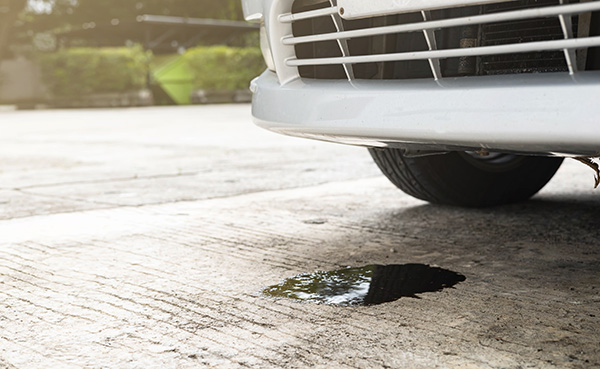
A small oil leak can feel like a later problem. The car still starts, runs, and gets you where you need to go, so it’s tempting to top off and move on. Oil leaks rarely stay neat for long. Most small leaks either grow, spread, or create secondary problems that cost more than the original repair. Fixing it early is usually the cheaper and less stressful route. Why Small Oil Leaks Get Worse Heat cycles and vibration work against gaskets and seals every time you drive. Once a seal starts weeping, oil softens rubber nearby, attracts grit, and turns a clean surface into a slippery one that’s harder to seal later. A damp spot today can become a steady drip a month from now. Even if the leak rate stays small, the mess rarely does. Airflow under the vehicle can spread oil across shields, suspension parts, and wiring, making it harder to spot new issues. Common Engine Oil Leak Sources Many leaks start in places that are easy to overlook becaus ... read more
Posted on 1/30/2026
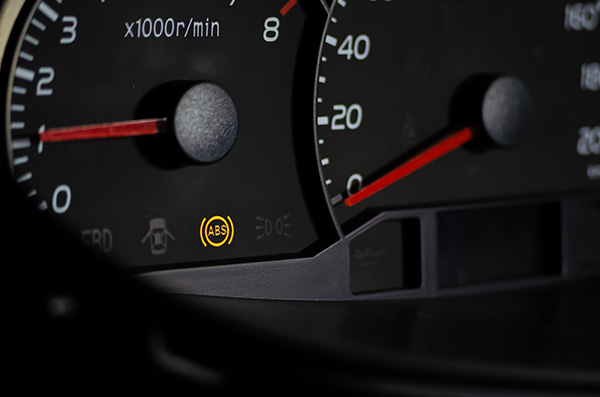
ABS is one of those systems you barely think about until the road is slick and you need a hard stop. Instead of the wheels locking up and sliding, ABS helps keep the tires rotating so you can still steer while braking. The whole system depends on accurate wheel speed information, and that comes from the ABS sensors. When a sensor starts lying or dropping out, braking can feel strange, warning lights pop on, and other safety features may switch off too. How ABS Sensors Actually Read Wheel Speed Each wheel has a sensor that tracks rotation speed. Depending on the vehicle, that sensor reads a toothed ring, a magnetic encoder, or a built in tone ring that’s part of the wheel bearing. The sensor sends a signal to the ABS module, and that module compares all four wheels many times per second. The important thing is consistency. The module isn’t only looking for a wheel that slows down fast. It’s also looking for one wheel that reports a speed that does ... read more
Posted on 12/19/2025
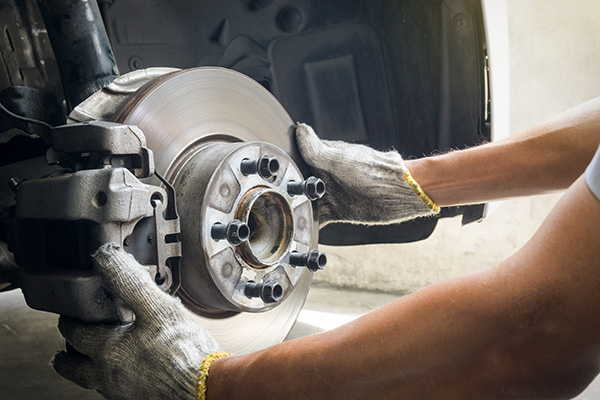
When everything in the brake system is working together, the car stops smoothly and straight with very little drama. When a brake caliper starts to stick, that balance disappears. You might feel a pull, a shake, or notice one wheel running hotter than the rest. Those symptoms often get dismissed as “just pads and rotors,” but a problem caliper is usually what started the mess in the first place. Why Brake Calipers Matter More Than You Think Calipers are the workhorses that squeeze the brake pads against the rotors every time you press the pedal. Inside, pistons move in and out, guided by seals and hardware that let them release cleanly when you lift your foot. That release is just as important as the clamping force. If the piston or slides hang up, the pad can drag on the rotor, creating heat, extra wear, and uneven braking. On many modern cars, the brake system is tuned so carefully that a single sticky caliper can throw off the whole feel of the vehic ... read more
Posted on 11/28/2025
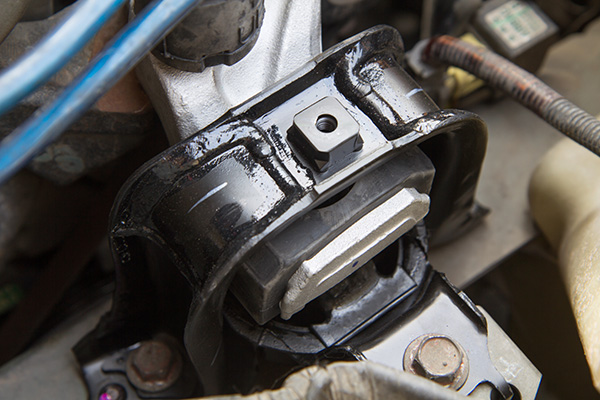
A smooth idle and a quiet cabin make a car feel solid. When mounts begin to fail, that calm gives way to shakes at stoplights, thumps during shifts, and a harsh buzz when you start the engine. Those symptoms are not only annoying but can also lead to damage to exhaust joints, axles, and wiring if ignored. The fix starts with a proper diagnosis, so the right mount is replaced and the shake is gone for good. What Motor Mounts Actually Do Motor mounts hold the engine and transmission in place while isolating vibration from the body. Most use rubber to absorb movement, some use liquid-filled chambers to cancel specific frequencies, and modern cars may add an active mount that changes stiffness under computer control. Mounts allow just enough motion for comfort without letting the powertrain slam against its stops. When the rubber cracks or the fluid leaks out, the engine moves too far, and you feel that motion through the steering wheel and seats. Early Signs Yo ... read more
Posted on 10/31/2025
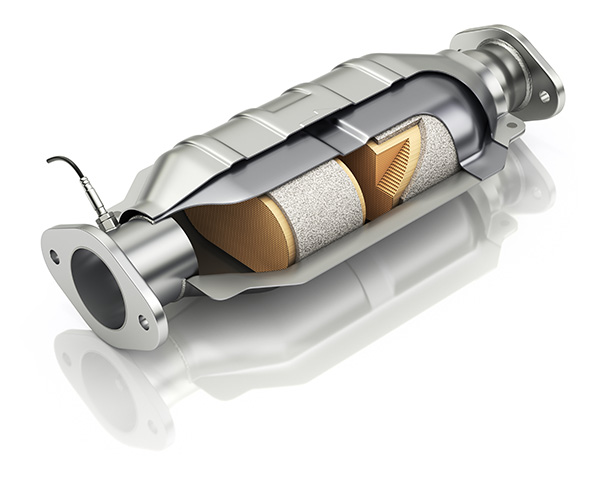
Your car’s catalytic converter reduces harmful exhaust emissions. It’s designed to convert toxic gases like carbon monoxide, hydrocarbons, and nitrogen oxides into less harmful substances before they leave your tailpipe. When the converter is functioning properly, your vehicle runs cleaner, passes emissions tests, and stays within legal pollution limits. But if your catalytic converter starts to fail, it can trigger a host of problems. From check engine lights to sluggish engine performance and even a rotten egg smell, a bad converter affects both your emissions and how your car drives. That’s why caring for it is not only an environmental responsibility but also a way to avoid costly repairs. What Causes a Catalytic Converter to Wear Out Most catalytic converters are built to last for well over 100,000 miles. However, they can wear out sooner under certain conditions. The most common causes of premature failure include: Unburned fuel entering the ... read more
Posted on 9/26/2025
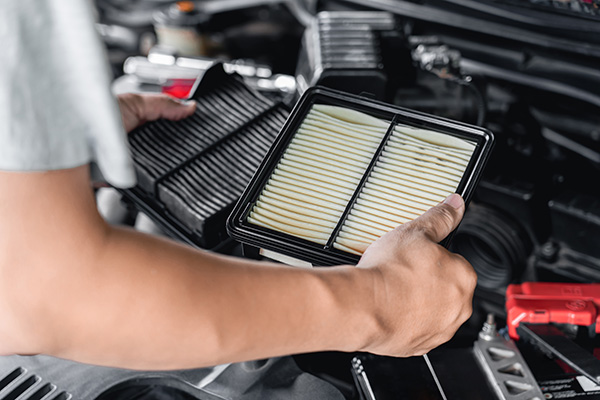
When it comes to maintaining your vehicle’s performance and comfort, filters play a bigger role than most drivers realize. Two of the most overlooked but essential components are the cabin air filter and the engine air filter. While they sound similar, these filters serve very different purposes and have unique maintenance schedules. Knowing the differences between them can help you stay ahead of potential problems and ensure your vehicle runs smoothly year-round. The Role of the Cabin Air Filter The cabin air filter is all about passenger comfort and health. Located behind the dashboard or under the hood near the windshield, this filter cleans the air that enters your vehicle’s interior through the heating, ventilation, and air conditioning (HVAC) system. It traps dust, pollen, mold spores, and other airborne contaminants, ensuring the air inside the cabin remains clean and breathable. If you suffer from allergies or drive in dusty environments, a clean ... read more
Posted on 8/29/2025

Feeling your steering wheel shake while cruising down the highway is more than just annoying—it’s a sign something isn’t right. Steering wheel vibrations at high speeds can make driving feel unstable and unsafe. Whether it starts as a minor tremble or a persistent shake, diagnosing the cause early helps you avoid more serious problems down the road. We’ll explain why your steering wheel might be vibrating and what to do about it. Why Steering Wheel Vibrations Are a Concern A vibrating steering wheel isn’t always a major issue, but it should never be ignored. The cause might be as simple as an out-of-balance tire or as serious as a failing suspension part. If left unchecked, small problems can evolve into expensive repairs or even safety hazards. Since many systems affect how your steering wheel feels, pinpointing the issue requires careful inspection and often some road testing. Tire Problems Are Often the First Suspect ... read more
Posted on 7/25/2025

There’s nothing quite like the excitement of hitting the open road for a long trip. Whether you're heading to visit family, explore the coast, or take a scenic mountain drive, making sure your car is ready is one of the most important steps. A thorough pre-trip inspection helps ensure a safe, smooth, and worry-free journey. Knowing what to check can prevent unexpected breakdowns and keep your adventure on track. Check Your Engine Oil Your engine oil keeps everything running smoothly by reducing friction and preventing overheating. Before setting out, check your oil level and condition using the dipstick. If the oil appears dark or dirty, or if it's been a while since your last oil change, it’s wise to replace it before your trip. Starting your journey with clean oil helps protect your engine through long stretches of driving and varying road conditions. Inspect Your Tires Tires are your car’s only contact point with the ro ... read more
Posted on 6/27/2025
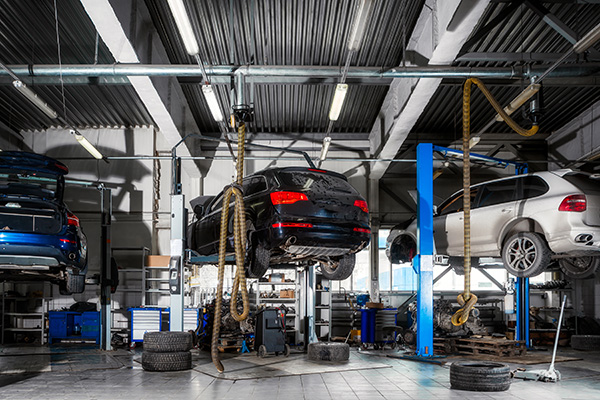
Waiting for a warning light or strange noise to show up isn’t the best strategy for vehicle maintenance. Many car problems start quietly and develop slowly, showing no signs until the issue has already caused damage. That’s why routine vehicle inspections are such an important part of keeping your car safe, reliable, and cost-effective to maintain. We'll explain why regular inspections matter and how they help you catch problems before they get serious. Why Routine Inspections Matter When you bring your vehicle in for a regular checkup, it gives technicians a chance to examine everything from fluid levels and brake pads to suspension components and belts. Even a quick visual inspection can reveal issues like leaks, tire wear, or loose connections. Identifying problems early gives you options. You can often schedule a repair at your convenience ... read more
Posted on 5/30/2025
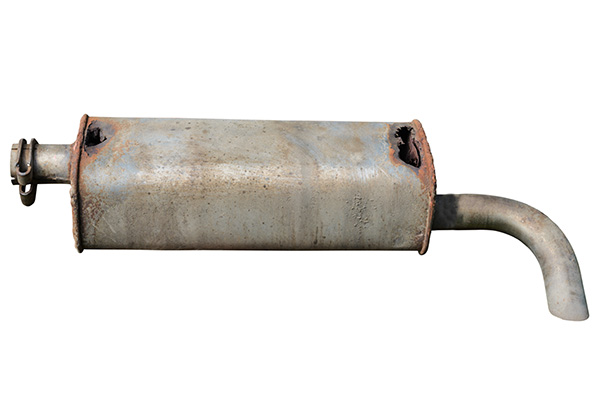
You know your car’s normal sounds—how it idles, hums at cruising speed, or gently roars when you step on the gas. So when the exhaust suddenly sounds louder, raspier, or just... off, it grabs your attention. Maybe it’s a deeper growl, maybe a harsh rattling. Either way, it’s not something to ignore. An unusually loud exhaust can point to several issues—some minor, some serious. Here’s a breakdown of what could be causing the noise and why it’s worth checking out sooner rather than later. Exhaust Leak One of the most frequent reasons your exhaust might sound louder is a leak somewhere in the system. Exhaust leaks can happen anywhere—from the exhaust manifold all the way to the tailpipe. Over time, heat, moisture, and road salt wear down the metal, leading to small cracks or holes. If the leak is before the muffler (close ... read more